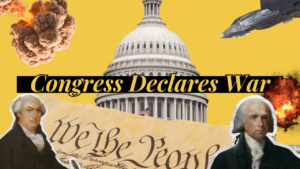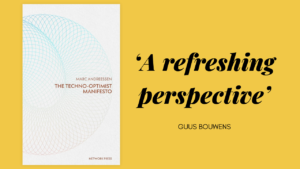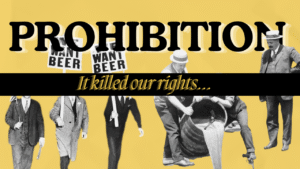– By Oyindamola Osinubi
The strength of a liberal society lies in its commitment to protecting individual freedoms, upholding democratic governance, and ensuring the rule of law. These principles enable societies to flourish by fostering trust, creativity, and progress. Yet, in some parts of Africa, these ideals are under attack. On May 19, 2024, an attempted coup in the Democratic Republic of the Congo (DRC) targeted President Félix Tshisekedi and Economy Minister Vital Kamerhe. Fortunately, the state’s security forces were able to crush the assailants. In societies with no attempted coups, governments are using other illiberal ways to impose their will on the people. In Tanzania, a local media company was suspended for detailing Tanzanians’ true problems. State surveillance is a key tool used to suppress liberty, and to protect liberty we must curtail it.
To protect and nurture liberal societies in Africa, we must urgently address intrusive state surveillance, the suppression of political opposition, and increasing restrictions on press freedom. This involves ending unwarranted state surveillance, embracing political opposition as a democratic necessity, ensuring the rule of law is applied equally to all, and safeguarding press freedom against threats and intimidation.
Ending state surveillance is a key way in which Africa can move towards a liberal society. On the continent, as in the rest of the world, state surveillance is often justified as necessary for national security but comes at a steep cost to individual freedom. The problem isn’t just about what the state sees; it’s about how this knowledge can be used to intimidate or control. In many countries, people are hesitant to speak freely, fearing that their words might come back to haunt them. This fear chips away at democracy by silencing voices challenging the status quo.
Ending state surveillance also includes acknowledging the role of a free press without obstruction. Without a free press, there is no democracy. Journalists act as watchdogs, exposing corruption, holding power to account, and informing the public. Yet, across Africa, they are under attack. From harassment to imprisonment to outright assassination, the threats they face grow more severe.
To address this, African countries need clear, enforceable laws that limit surveillance to genuine security threats, overseen by independent watchdogs with real power to hold intelligence agencies accountable. Transparency is key. People must know what their governments are doing.
Governments must also actively protect journalists by not stopping them from doing their work. This includes prosecuting those who harm them and implementing laws that shield reporters from surveillance and interference.
Further, the government must also take the step of allowing political opposition. Fundamentally, democracy can function without opposition. Societies evolve and improve through debate, dissent, and dialogue. Yet, in too many places, opposition voices are being stifled through intimidation, legal hurdles, or outright violence. While many African societies are nominally open politically, legal obstacles prevent true opposition from challenging government, akin to obstacles to true market competition in countries with state-protected industries.
A functional opposition is not just a counterbalance to power; it’s a vital source of new ideas and alternative policies. Governments that embrace opposition rather than fear it often emerge stronger. Inclusive approaches help to stabilize liberty despite challenges.
In South Africa, the Democratic Alliance (DA) has historically provided robust opposition to the African National Congress (ANC), contributing to policy innovation and transparency. The DA’s commitment to good governance is evident in its active participation in coalition discussions, reflecting its influence on the legislative agenda.
The presence of opposition parties facilitates the preservation of the rule of law. The rule of law ensures that no one—no matter how powerful—is above accountability. It is the backbone of liberty and justice, ensuring society operates fairly and predictably. When governments circumvent or manipulate the law to suit their interests, they erode public trust and cause chaos. Their actions don’t just harm individuals; they weaken the entire justice system.
For example, Kenya’s judiciary has been a symbol of hope, especially in the 2017 Supreme Court decision to nullify a presidential election over irregularities—a first in Africa. This act demonstrated the judiciary’s independence and commitment to upholding the law. Judicial institutions in countries like South Africa, Botswana, and Namibia, which are praised for impartiality, are models for other African nations.
Restoring trust in the rule of law requires more than good laws. It requires independent courts and judges who are free to make decisions based solely on the merits of a case. It also requires that law enforcement agencies act impartially and hold those abusing their power accountable. Transparency in legal proceedings is crucial for a liberal society.
The challenges facing liberal societies today are immense but not insurmountable. We can ensure that liberty thrives by addressing state surveillance, fostering political opposition, strengthening the rule of law, and protecting the press.
More importantly, none of the above steps can succeed in isolation. A free press cannot operate in a society where laws are applied arbitrarily, just as opposition parties cannot function if their members are constantly under surveillance. The fight for liberty is holistic, requiring vigilance and dedication at every level.
Also, in an era when illiberal ideas are gaining traction, we are all responsible for protecting the principles of liberty. We must actively defend them through activism, education, and engagement. The future of liberal societies depends on our willingness to stand up, speak out, and demand better from those in power.






